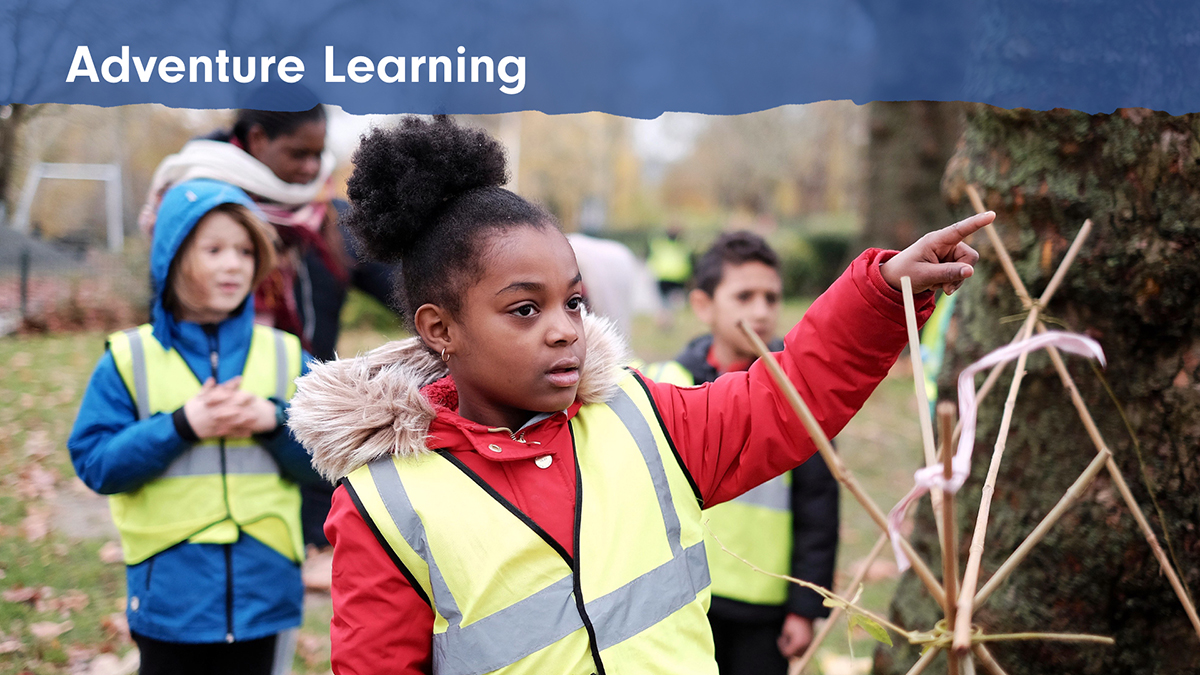
Adventure Learning in Finsbury Park

Adventure Learning delivers outdoor adventures within the school curriculum that support teaching and learning in the classroom. We are thrilled to be have been invited to deliver a funded programme of heritage-themed learning adventures in Finsbury Park over the next few months as part of the park’s 150th anniversary.
Finsbury Park opened in 1869 to provide Londoners with a haven away from the urbanisation of the city. As well as being at the height of the Industrial Revolution, this was also a period of great growth in education - volunteer led Ragged schools had been opening across London from the early 1840s, the government had started funding teacher training from 1946 and parliament was allocating ever increasing money towards education over the 1860s. And in 1880, the Elementary Education Act was passed, requiring all children from 5 to 10 years of age to attend school. Lots of the Victorian schools built over this time still operate today and the basic classroom off corridor design of these schools has remained the template for most schools built ever since. We’ve just continued to make the physical environments within our schools ever more controlled through improved heating, lighting and acoustics.
As great as these developments in education and our schools have been, there is also a downside to continuing our reliance on learning environments that are ever more disconnected from the outside world and the natural environment.
The Oxford Dictionary defines adventures as “unusual and exciting or daring experiences”. That suggests a journey – going somewhere perhaps, or doing something we’ve never done before (or at least not often) – a sense of freedom to get something new out of a situation.
Learning is “the acquisition of knowledge or skills through study, experience or being taught”.
Even having amazing teachers and beautiful, fit-for-purpose schools doesn’t change the fact that, for much of their time, many of our teachers teach and pupils learn from plastic chairs in temperature-controlled classrooms, using books and laptops to engage with the outside world. They look up to ceilings rather than the ever-changing sky, and walk across perfectly level surfaces rather than uneven ground. These physical environments are many things, but adventurous isn’t one of them.
Adventure Learning can be as simple as taking learning outside into a cold, hot, wet, windy, cloudy or even a perfect day, and away from the highly controlled physical environment of a modern classroom. Add some getting-hands-dirty, real-world physical and immersive mental team challenges, linked to what you are studying - be it stone age or Romans, propulsion or geography and your adventure gets a bit bigger. It becomes an opportunity to put knowledge and theory into practice – to make it real.
Natural Connections (funded by Natural England, the Department for Environment, Food & Rural Affairs and Historic England and delivered by Plymouth University) is the largest outdoor learning project in England. It found the following benefits:
- 95%of children surveyed said outdoor learning makes lessons more enjoyable
- 90% of staff surveyed found outdoor learning to be useful for curriculum delivery
- 93% of schools said outdoor learning improves pupils’ social skills
- 92% of schools said it improves pupils’ health and wellbeing and engages them with learning
London today is a far cry from the London of the nineteenth century. Life expectancy is up, living standards can’t be compared, children go to school, the air is cleaner, and so much more. But Finsbury Park has remained vital to the health and well-being of the local population.
Going forward from this 150th year, we’d like Finsbury Park to grow to become an outdoor adventure learning haven for our schools. A safe place in the community away from the enclosed and controlled environment of our school buildings where classes can come to take part in unusual, fun and sometimes daring experences that help bring learning alive.
This would benefit pupil and staff health and well-being and support attainment. Bringing learning activities to the park would be positive to the overall vitality of the park. Running such a programme in one of London’s main parks will also make a statement about the important role our urban parks can play in helping connect our children with the natural world.
Please contact adventurelearning@2nq.uk if you’d like to know more.
Hugh Dames
Adventure Learning Lead
